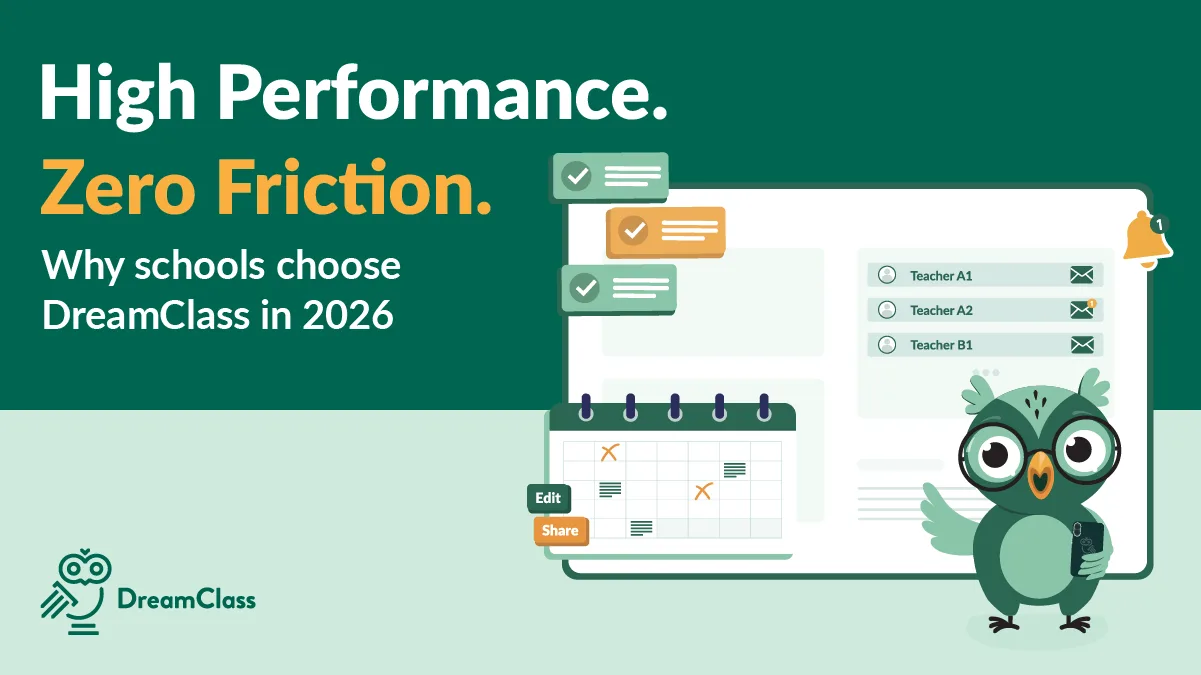What Is Homeschooling? Pros, Cons, and How to Get Started
Curious about homeschooling but not sure where to start? You’re not alone. Families everywhere are exploring this alternative form of education.
Whether you’re frustrated with your local school system or seeking a more personalized approach, this guide will help you weigh the pros and cons of homeschooling, understand the benefits, and learn how to begin.
Table of contents:
- What Does Homeschooling Really Mean?
- Why Are More Families Choosing to Homeschool?
- Which Countries Are Embracing Homeschooling?
- What Are the Benefits of Homeschooling?
- What Are the Challenges of Homeschooling?
- What Are the Legal Requirements for Homeschooling?
- How Do You Start Homeschooling?
- Can Homeschooled Children Get Into College?
- How Do Homeschoolers Stay Socialized?
- How Can DreamClass Help Support Your Homeschooling Journey?
- Still unsure where to start?
- FAQ
What Does Homeschooling Really Mean?
Homeschooling means that a parent or guardian takes primary responsibility for a child’s education, typically in a home environment. It’s more than just teaching from home—it’s about customizing learning to suit a child’s pace, interests, and goals. The approach may be traditional, interest-led (unschooling), or eclectic — a mix of different methods.
Some families use complete homeschooling programs, while others assemble their own curriculum using a combination of workbooks, online tools, and experiential learning. In essence, homeschooling empowers parents to align education with their child’s needs and family values.
So, what Are the Different Types of Homeschooling?
Homeschooling isn’t one-size-fits-all. Families choose from a variety of approaches based on their goals, teaching style, and the needs of their children. Here are some of the most common types:
- Traditional (School-at-Home) – Mimics the structure of public or private school, with textbooks, worksheets, and set schedules.
- Unschooling – A child-led approach that emphasizes curiosity and learning through life experiences, without a fixed curriculum.
- Classical Education – Based on the trivium (grammar, logic, rhetoric), this method emphasizes critical thinking, language, and classical texts.
- Charlotte Mason – Focuses on literature, nature study, and narration rather than rote memorization or testing.
- Montessori – Encourages self-directed learning in a prepared environment, typically emphasizing hands-on, tactile activities.
- Eclectic or Hybrid – Combines elements from multiple homeschooling styles to create a personalized learning experience.
- Online or Virtual Schooling – Involves structured courses provided by accredited online programs, sometimes affiliated with school districts.
Each method has its strengths, and many families evolve their approach over time as their child’s needs and interests change.
Why Are More Families Choosing to Homeschool?
There are several reasons parents opt for homeschooling. Common motivators include:
- Concerns over school safety or bullying
- Desire to incorporate religious or cultural teachings
- Academic dissatisfaction with public schools
- Need for flexible schedules due to travel, health, or lifestyle
- Accommodations for special learning needs
Especially after the COVID-19 pandemic, many families found remote learning inefficient or frustrating. But some also realized they enjoyed being more involved in their child’s education.
Which Countries Are Embracing Homeschooling?
Homeschooling is growing in popularity, particularly in English-speaking countries where legal frameworks support educational choice. Some notable examples include:
- United States – Homeschooling is legal in all 50 states, with growing enrollment every year.
- Canada – Each province regulates homeschooling independently; support and resources are widely available.
- United Kingdom – Homeschooling (referred to as home education) is legal and does not require registration, although local authorities may inquire about a child’s education.
- Australia – Families can homeschool legally, but they must register with their state or territory’s education department.
- New Zealand – Parents can homeschool with government approval, and may receive a small allowance to offset costs.
These countries offer varied models, but all recognize homeschooling as a legitimate educational path.
What Are the Benefits of Homeschooling?
Homeschooling isn’t just about control over curriculum. It offers a range of benefits, such as:
- Individualized Learning: Lessons can be tailored to your child’s pace and interests.
- Stronger Family Connection: Daily interaction creates bonding opportunities.
- Efficient Learning: One-on-one instruction typically covers material faster than traditional classrooms.
- Flexible Scheduling: Travel during off-peak times or learn outdoors in spring.
- Focus on Mastery: Students can spend more time on challenging topics, and skip over material they already know.
Moreover, many children thrive with the quiet, distraction-free environment homeschooling provides.
What Are the Challenges of Homeschooling?
No method of education is without drawbacks. When evaluating the cons of homeschooling, consider:
- Time and Energy Demands: Parents must serve as educators and facilitators.
- Financial Considerations: One parent may reduce working hours; curricula and resources can add up.
- Socialization: Children may need extra effort to connect with peers.
- Parental Doubts: Not all parents feel confident teaching every subject, especially at high school level.
- Legal Compliance: States have varying homeschool laws that must be followed closely.
Despite these issues, many families mitigate challenges through community co-ops, tutors, and flexible schedules.
What Are the Legal Requirements for Homeschooling?
Homeschooling is legal in all 50 U.S. states, but the specifics vary widely:
- Some states (like Texas) have minimal regulation.
- Others (like Pennsylvania or New York) require annual evaluations and detailed documentation.
- You may need to file a notice of intent, track attendance, or administer standardized tests.
Websites like HSLDA.org or your state’s Department of Education are helpful starting points for understanding these legal responsibilities.
So, Who Oversees Homeschooling Compliance?
Homeschooling compliance is typically monitored by state or local education authorities, depending on where you live. These may include:
- State Departments of Education – Often set guidelines, manage forms like notices of intent, and require assessment results or portfolios.
- Local School Districts – In some states, they review submitted documentation and ensure legal requirements are met.
- Homeschooling Associations – While not official regulators, groups like HSLDA offer legal advice, forms, and updates to help families stay compliant.
- Accredited Umbrella Schools or Programs – In some cases, families may homeschool under the supervision of an umbrella school that ensures all educational and legal standards are fulfilled.
Always double-check requirements with your state or district’s education office, as laws and responsibilities vary widely.
How Do You Start Homeschooling?
Here’s a simplified checklist to help you begin:
- Understand Your State’s Laws: Start by researching what is legally required in your area.
- Set Clear Goals: Define your educational philosophy and what success looks like.
- Choose a Curriculum: Whether it’s a structured boxed curriculum or pieced together from multiple sources, pick one that suits your child’s style.
- Create a Learning Environment: Designate a learning space. It doesn’t need to be fancy—a kitchen table or reading nook works.
- Build a Schedule: Some families follow a school-like routine, while others adopt block or loop scheduling.
- Join a Support Network: Look for “homeschooling groups near me” — many meet regularly, organize field trips, or share resources.
The beauty of homeschooling is flexibility. There’s no single right way to do it.
Can Homeschooled Children Get Into College?
Yes. In fact, many colleges actively recruit homeschoolers for their independence and strong self-directed learning habits. When applying, homeschoolers typically submit:
- A parent-generated transcript
- Course descriptions
- Letters of recommendation (from tutors, mentors, or coaches)
- Standardized test scores (SAT/ACT, if required)
Some families also pursue accredited homeschool programs to simplify the college application process.
How Do Homeschoolers Stay Socialized?
Socialization is a frequent concern, but homeschooled children often engage with others in meaningful ways:
- Co-ops and learning pods
- Sports teams or extracurricular clubs
- Volunteer work
- Faith-based youth groups
- Classes at museums, libraries, or local businesses
In fact, many parents find that homeschool socialization can be deeper and less clique-driven than in traditional schools.
How Can DreamClass Help Support Your Homeschooling Journey?
Even homeschools need some way to organize everything. And DreamClass isn’t just for traditional schools — it’s also a powerful ally for homeschool families. Here’s how it can make your homeschooling experience smoother and more efficient:
- Centralized Academic Records: Keep track of subjects, grades, and assessments in one intuitive dashboard. Whether you’re building transcripts or reporting to your state, everything is organized and accessible.
- Flexible Scheduling Tools: Create and adjust learning schedules based on your family’s rhythm. You can manage lesson plans, track attendance, and customize calendars easily.
- Customizable Student Profiles: Tailor profiles to reflect your unique educational goals and track progress for each child individually.
- Support for Co-Ops: If you’re part of a homeschooling co-op, DreamClass helps coordinate activities, share curricula, and manage group sessions with ease.
- Access from Anywhere: Because it’s cloud-based, you can manage your homeschooling plan even from a portable device, whether you’re at home or on the move.
DreamClass helps take the administrative stress out of homeschooling, so you can focus more on your child’s learning and growth.
Still unsure where to start?
Book a free consultation with a DreamClass expert and get tailored help choosing a homeschooling path that fits your family’s goals.
Read more about Homeschooling:
- What Are the Best Free and Affordable Homeschooling Tools?
- What Are the Homeschooling Requirements in Texas and Other Key States?
- How to Choose the Right Homeschooling Curriculum
- The Ultimate Guide to Homeschooling Programs
FAQ
Frequently Asked Questions
Do I need a teaching degree to homeschool?
No. Most states allow any parent to homeschool regardless of background, though a few may require a GED or high school diploma.
Can I homeschool just one child and not others?
Absolutely. Many families homeschool one child while others attend public or private school.
Can I return my child to public school after homeschooling?
Yes, though re-enrollment procedures and grade placement may vary by district.
What are the pros and cons of homeschooling?
Pros include personalized pacing, stronger family connection, schedule flexibility and mastery learning. Cons include heavy parent time commitment, costs, extra socialization effort and compliance with legal rules.
What is the best way to start homeschooling?
Begin by researching laws in your region, set clear goals, choose or design a curriculum, create a learning space, build a schedule and join supportive networks.
What’s the best age to start homeschooling?
There’s no universal “best” age — many sources suggest starting when your child is ready and your family is prepared, often around early elementary school (ages 5-8).



